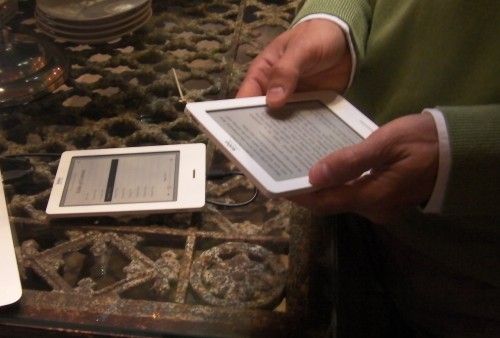Dear Theophilus,
When I was in
university I had a typical student car. It was a 10 year-old Volkswagen Rabbit
diesel, a certain shade of mottled brown with a mustard interior. Unlike my
present VW diesel, there was nothing turbocharged about the 4-speed manual
transmission; indicated by the 1-2-3-E stamped on the gearshift – and according
to my sister, the E didn’t stand for excellerate (sic).
What made this
particular VW distinctly mine was the way I decorated the interior. I had the
requisite national flag hanging from the rear-view mirror (I had just spent a
year studying in Belgium); where the ceiling upholstery had fallen, I had
stapled it back up in concentric circles; I also had a variety of toys and
postcards glued to the dashboard.
Written on one of the
postcards was the saying: The mind is like an umbrella, it works
better when it is open.
I thought this was
particularly clever, as did most of the people who sat in the passenger seat.
The obvious purpose of an umbrella is to keep rain off of one’s head (something
that had become quite evident during my time in Belgium), and the obvious way
to do this efficiently is to open up the umbrella. The mind is the same: the
purpose of the mind is to think, and the most efficient way to do this is to
open one’s mind to new ideas, and then to think on them.
What was missing from
the postcard cleverly glued to my dashboard was the notion that there are times
when it’s better to have your umbrella closed. This is self-evident to anyone
who has tried to walk their dog on a blustery day. Trying to balance the leash,
a poop-bag and an umbrella torn by the unruly wind; something has got to give –
and personally, I know it is better for me to come home a little damp and with
the dog, than dry and without.
There are other times,
too, when the purpose of an open umbrella is quite counter-productive. Nothing
lifts the spirits better on a cold drizzly day than to see the clouds part and
the sun’s rays peek through. The immediate reaction when this happens is to
close your umbrella and turn your face towards the sun, closing your eyes and
basking in its glowing warmth. I don’t think it would take too much to convince
you that in this particular instance, the umbrella works better when it’s
closed.
While reading G.K.
Chesterton’s Heretics, I was reminded recently that the mind, like an
umbrella, can also work perfectly well when it’s closed; that it shouldn’t be
left perpetually open. Although he doesn’t make the umbrella analogy,
Chesterton wrote on the real purpose of having an open mind:
Merely having an open
mind is nothing. The object of opening the mind, as of opening the mouth, is to
shut it again on something solid.
I think Chesterton’s
analogy is much more beautiful, and much more truthful, than that of the
umbrella.
As a bit of a
gourmand, I like to eat. Even more so when a meal is especially savoury. I try
to use all of my senses in eating: allowing the scent to awaken my taste buds;
devouring the plate set before me with my eyes; finally holding a morsel in my
mouth, rolling it over with my tongue, not only tasting it, but savouring the
texture as well. And like my mother always told me, I eat with my mouth closed.
So it should be when
we open our mind to a new idea. We need to take it in, close our mind around
it, and mull that new thought over. Like new foods, new thoughts can be
delicious to our intellect. When that is the case, we want more and more of the
same, closing our mind around something that is solid, something that is
beautiful; the same way we would close our mouths around a dish we find
pleasing to our palate.
Unfortunately, this
closing of the mind on something solid, the savouring of an idea that is
particularly pleasing to the spirit, is frowned upon in our modern western
world. Whenever we try to stand for our principles, to express the beauty that
is the Truth, we are told not to be close-minded, to open up to new ideas.
The problem is that
it’s quite difficult to open the umbrella of the mind in today’s society. With
the advent of the internet and the proliferation of self-expression in social
media, the flow of ideas is much like that blustery day when I try to walk the
dog with my umbrella. In fact, most days the torrent of ideas flashing around
Twitter, Facebook and the blogosphere is more like a hurricane than a blustery
spring shower. Ever tried opening an umbrella in a hurricane?
Then there are times
when we find that ray of sunshine and the warmth that it brings. This is when
the winds die down and the clouds part and God’s light illumines our world.
When we find God’s Truth in Creation, we need to close our umbrella and bask in
the warmth He brings to our souls.
Like Chesterton, who
opens his mouth to close it on something solid and savoury, we need to open our
minds to the Word of God, closing it on something that is more solid and
delicious than any food found on earth.

